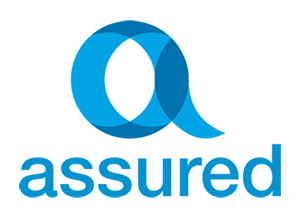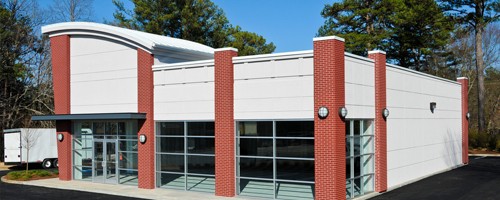Quick Application for Commercial Loans
COMMERCIAL AND BUSINESS LOANS NOW AVAILABLE
At Assured we’re so much more than just home loans. We work with a range of business partners and lenders to help you secure a great loan for your commercial needs. Whether you’re purchasing commercial real estate, need a commercial vehicle or for any other needs listed below, whatever your finance needs, we’re here to help.

UNSECURED BUSINESS LOANS
A faster way to access finance for everyday expenses.
Unsecured business loans are a relatively new option for businesses that need to get access to some extra funds. The obvious benefits of this type of finance is the speed in which access is granted to the finance, with simplified application process. This may allow you to quickly take care of cash flow, cover urgent expenses, or make the most of an opportunity.
Because they are unsecured the application is simpler and the loan amounts are often smaller – usually anywhere from $5,000 to $300,000. These types of loans can have turn around approvals and deposit cash into your account in as little as 24 hours. It also means there is greater risk to the lender so the interest rates may be relatively higher and the loan terms a lot shorter, with principal and interest repayments generally on a weekly basis but sometimes even daily.
While the access to funds can be handy, it’s important to weigh up the repayment terms and amounts to make sure this short-term cash injection helps your business over the short and medium-term.

WORKING CAPITAL FINANCE
Working capital finance is a business loan that can help you take care of your immediate and day-to-day costs.
Like the name suggests, having this type of financing means you have the capital to cover vital operating costs like paying suppliers, covering wages or adding inventory to make the most of busier business periods.
Importantly, it also means you can have funds at hand when you need them to create growth and make the most of any opportunities when they happen.
Overdraft
One type of Working Capital Finance is an overdraft facility. It’s an approved amount of credit you can use if and when you need it, that’s usually attached to your business transaction account. Because it’s designed to be a day-to-day facility, and not for capital purchases or long-term financing, an overdraft may provide a permanent source of short term funding to meet your operational expenses.
Line of Credit
For access to larger amounts of finance, a Line of Credit is another option. Like the overdraft facility, it’s credit you can access when it’s needed, but usually secured against property and generally not attached to a transaction account.
Trade and Inventory Finance
For many businesses, keeping adequate stock levels on the floor is what keeps them running efficiently. Inventory Finance is a short-term loan that allows you to purchase stock in advance without using up all your cash reserves. The products you buy are the collateral, so you don’t have to use your assets to secure the loan. This type of finance is especially useful for overseas trade purchases when buyers and sellers aren’t known to each other.

INVOICE FINANCE OR ACCOUNTS RECEIVABLE
Looking for an effective way of unlocking cash that’s already been invoiced to your clients?
Sometimes called Invoice Finance, Debtor Finance or Accounts Receivable Finance, this is like a cash advance based on the sales you’ve already made to your customers, without having to wait for the traditional 30, 60 or even 90 day payment periods.
In simple terms, a lender considers the invoices or monies you have owing as an asset. They’ll lend you a percentage of the money that’s owed to you, then pay you the remaining balance once they’ve collected the invoice, less a small percentage.
As an example, the lender could pay you 80% of a single invoice or the total balance of your combined invoices. The remaining 20% is paid to you once your client has paid the invoice, less a percentage ‘factor fee’.
This type of financing is a relatively quick and flexible way for your business to maintain cash flow, and can have many benefits when compared to other bank loans or lines of credit.
These can include:
- Gives you almost immediate access to funds once an invoice has been issued
- No other collateral or security is required
- There are no repayment schedules
- You don’t waste time chasing unpaid debts
- Helps you manage cash flow and plan for seasonal and day-to-day fluctuations
Debtor Finance, Invoice Finance and Accounts Receivable Finance. What’s the difference?
Essentially, they are all the same thing with one slight difference. Accounts Receivable Finance lends you money based on the total balance of all your invoices. Debtor or Invoice Finance is a loan based on one or several invoices.

SELF MANAGED SUPER FUND LOAN
Have you considered using the funds in your Self Managed Super Fund to invest in commercial property?
The savings you’ve built up in your Superannuation Fund can be used to make investments in a range of asset classes. By transferring your super to a new or established Self Managed Superannuation Fund (SMSF) the opportunity to use gearing to purchase property may become available.
Using your SMSF funds as a deposit, some lenders will approve loans starting at just $100,000 to purchase property, and the income generated from the rental can help meet your repayments.
With commercial property, it may be possible for your SMSF to purchase a property that will be occupied by your business, as long as the rent is at market rates.
Essentially this type of finance is a Term Loan with features such as flexible terms up to 30 years, the choice of principal and interest or interest only repayment, and the options of fixed or variable rates, or a combination of both.
There are many rules and regulations governing your SMSF so it’s important you get the advice of a financial professional, like your accountant or financial planner to assist you to make the right choices.

TERM LOANS
Terms loans are commonly used to buy commercial real estate, or to buy an existing business or franchise.
If you’re familiar with home loans, you’ll understand the principles of how a term loan works. Generally speaking, this type of loan can be used for two purposes – business or property.
Business purposes includes buying a trading business or franchise, a new business start-up or the expansion of an existing business.
The types of commercial real estate purchased encompasses a very broad spectrum. The types of real estate include established, vacant or to be developed land; owner occupied or investment; and zoned from retail, industrial, office, warehouse, factory unit, to specialised property such as aged care facilities, or hotels and taverns.
These loans almost always require security, generally over the commercial or residential property, and in the case of business loans, the assets of the business as well.
The amount you can borrow and the interest rates you’re charged are dependent upon a number of factors including loan purpose, security offered, history of the business, management experience and strength of your repayment capacity.
And, of course, you may be able to vary the loan amount, loan term, choose fixed or variable interest rates, and choose to pay back principal and interest, or interest only.
There are so many choices to consider, and that’s why enlisting the help of an experienced business finance broker is a smart place to start.

Are you also interested in personal loans?
f
Why Assured?

Almost 30 years in business

We’ve helped thousands of Australians

Fast approvals

Experienced and friendly consultants












